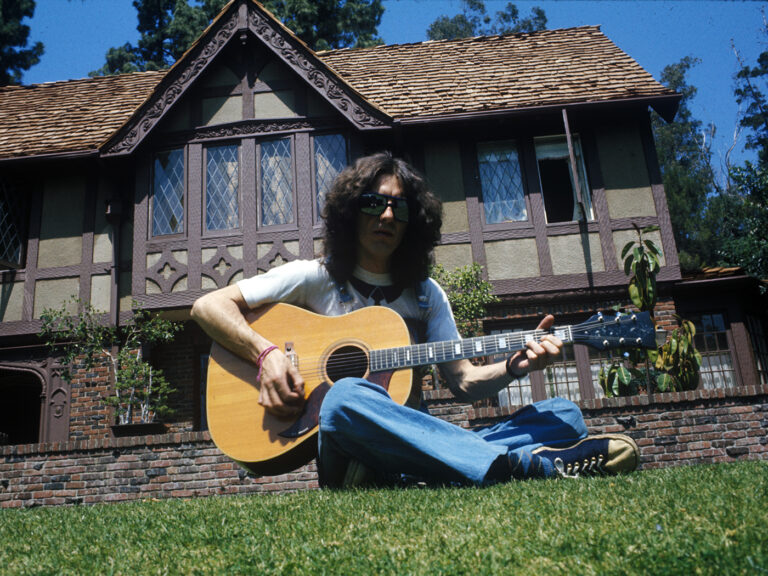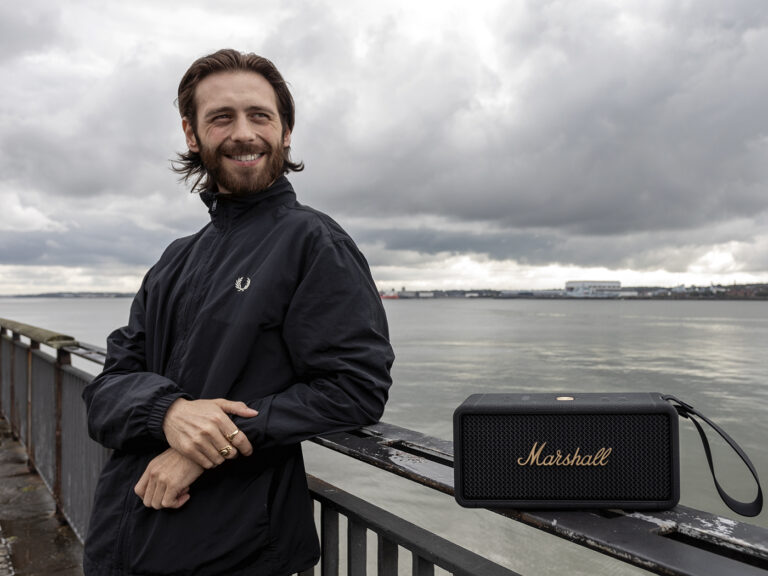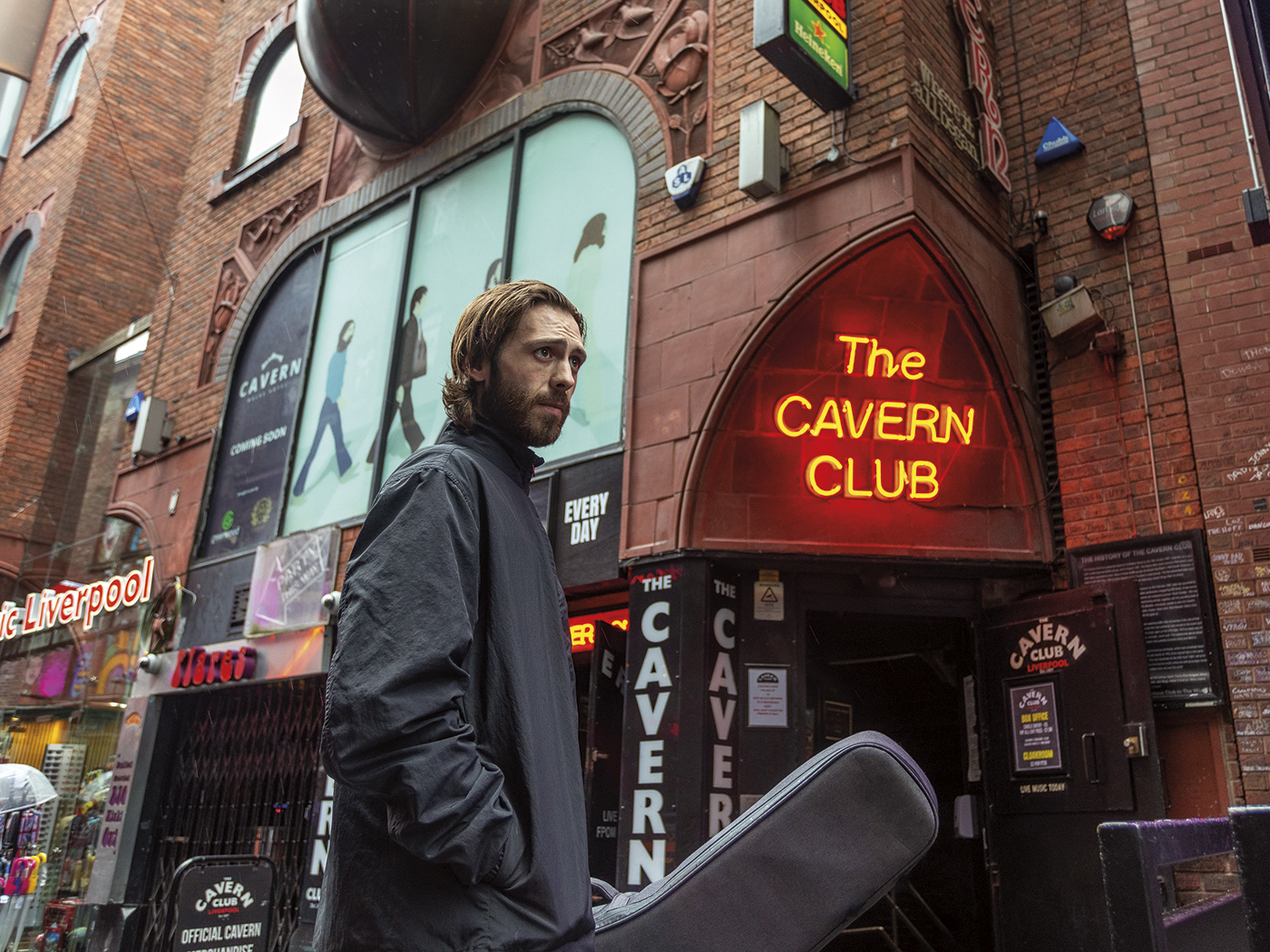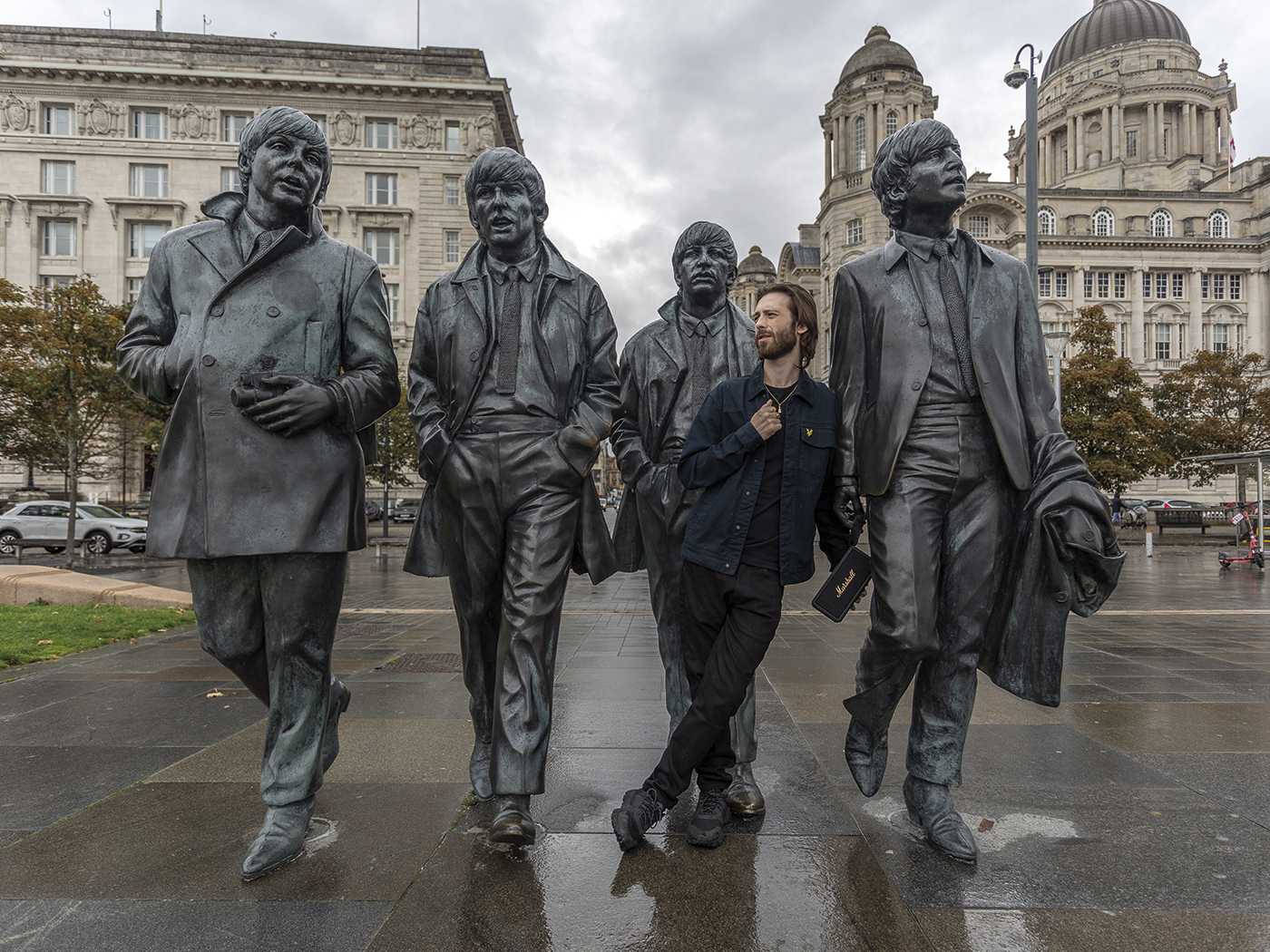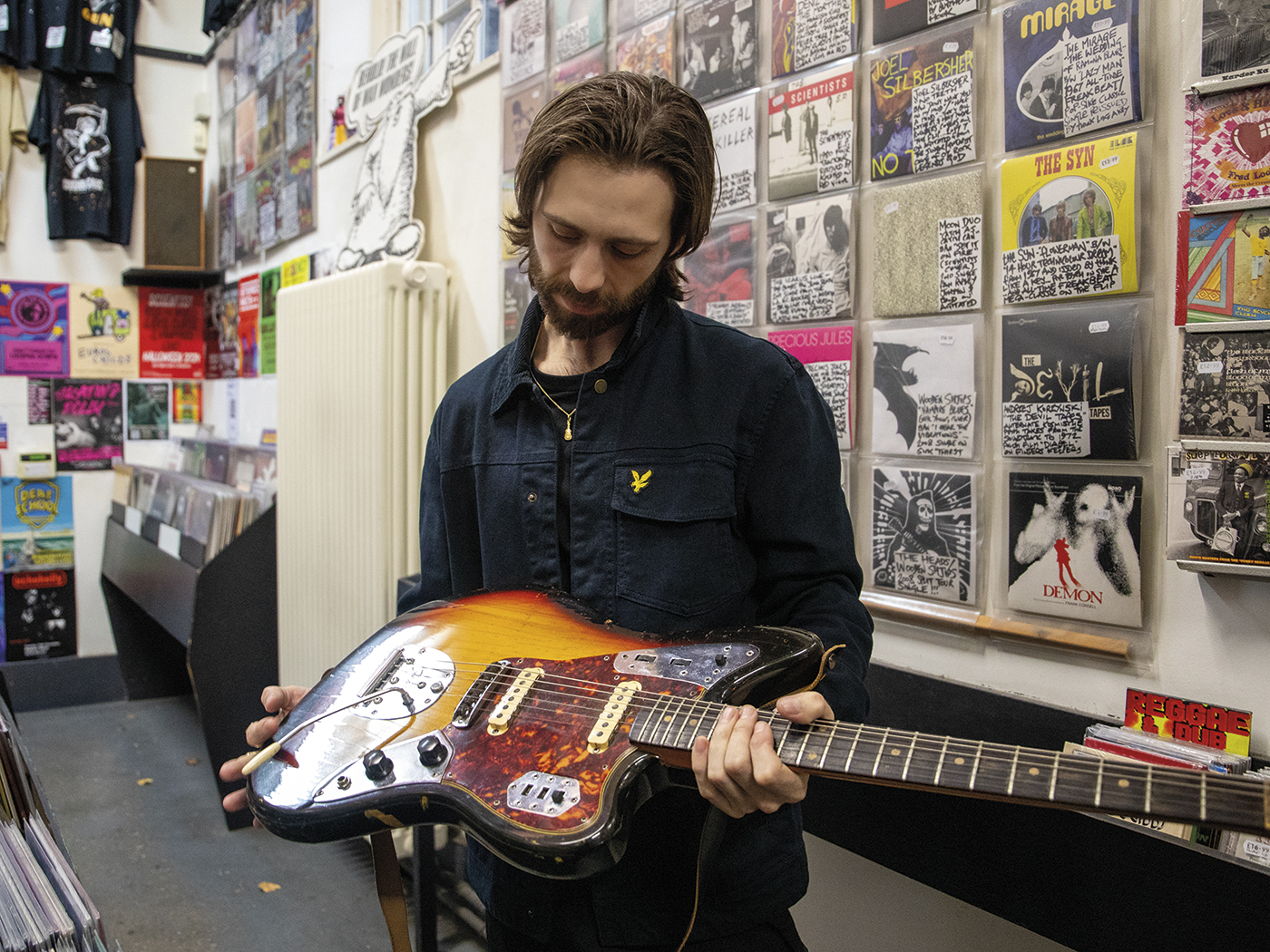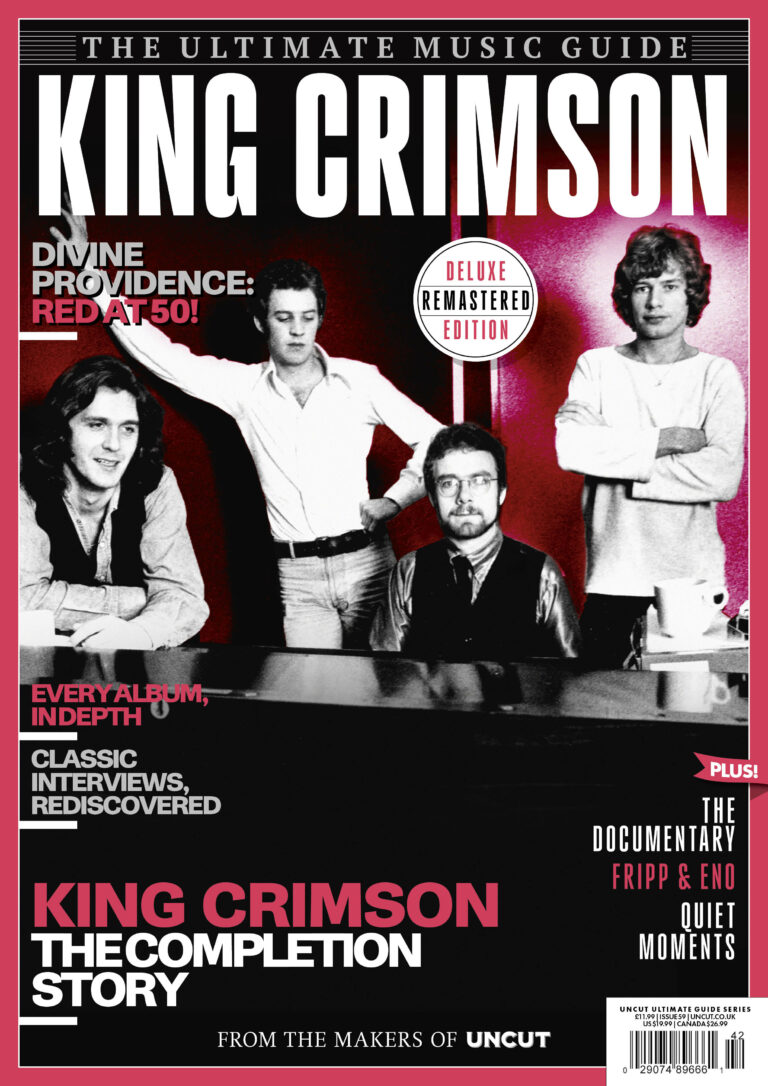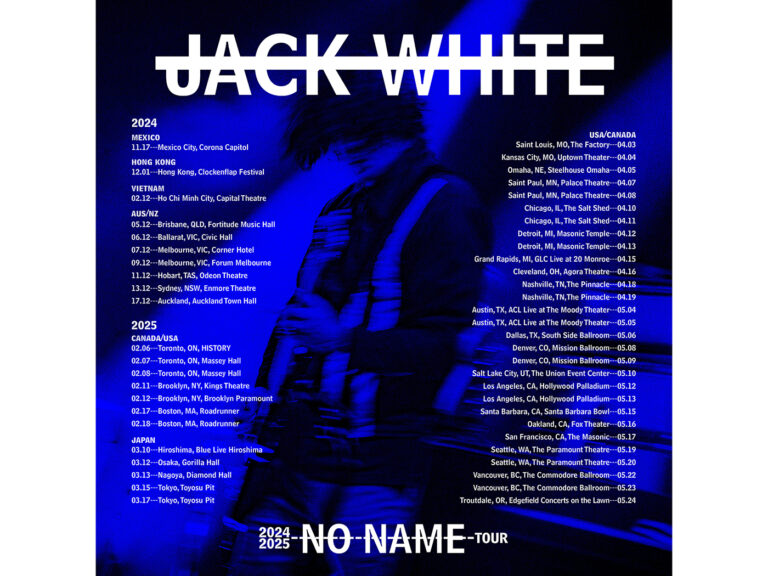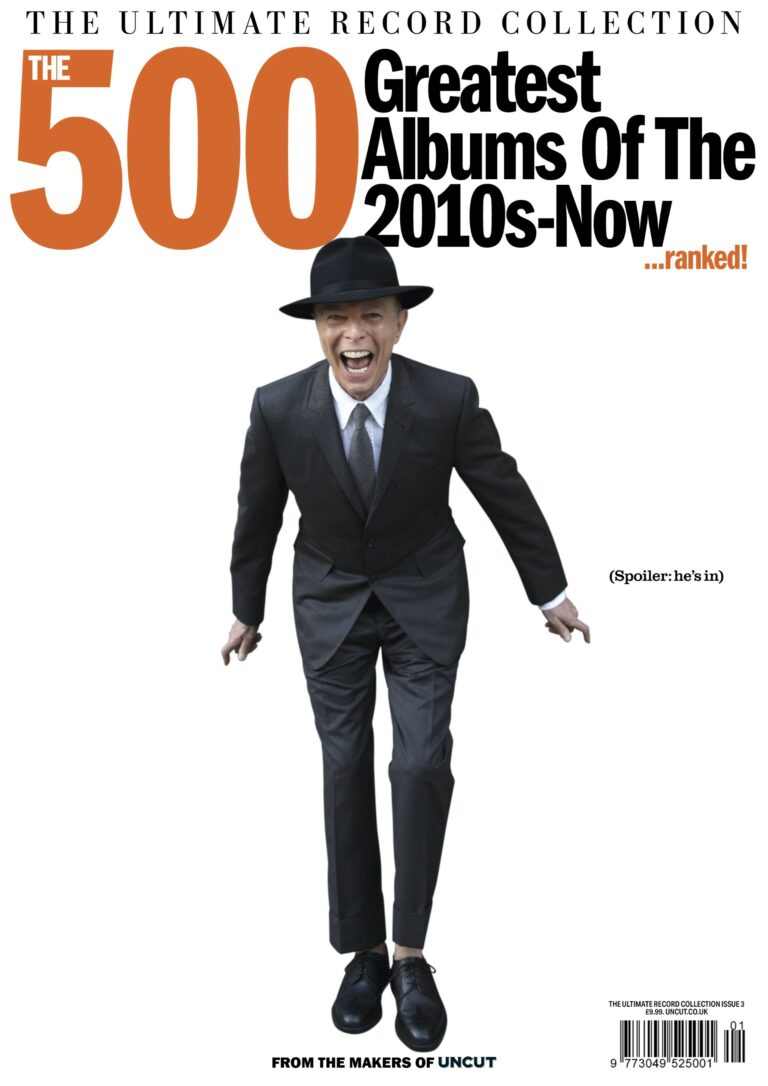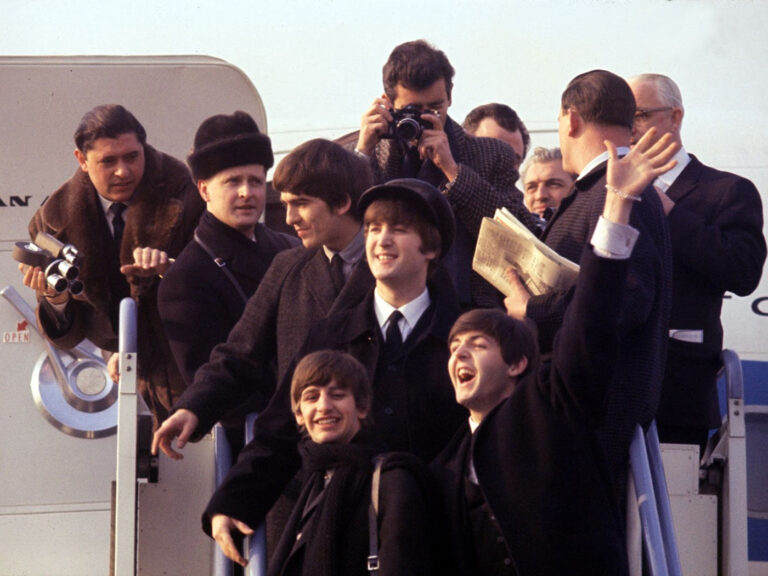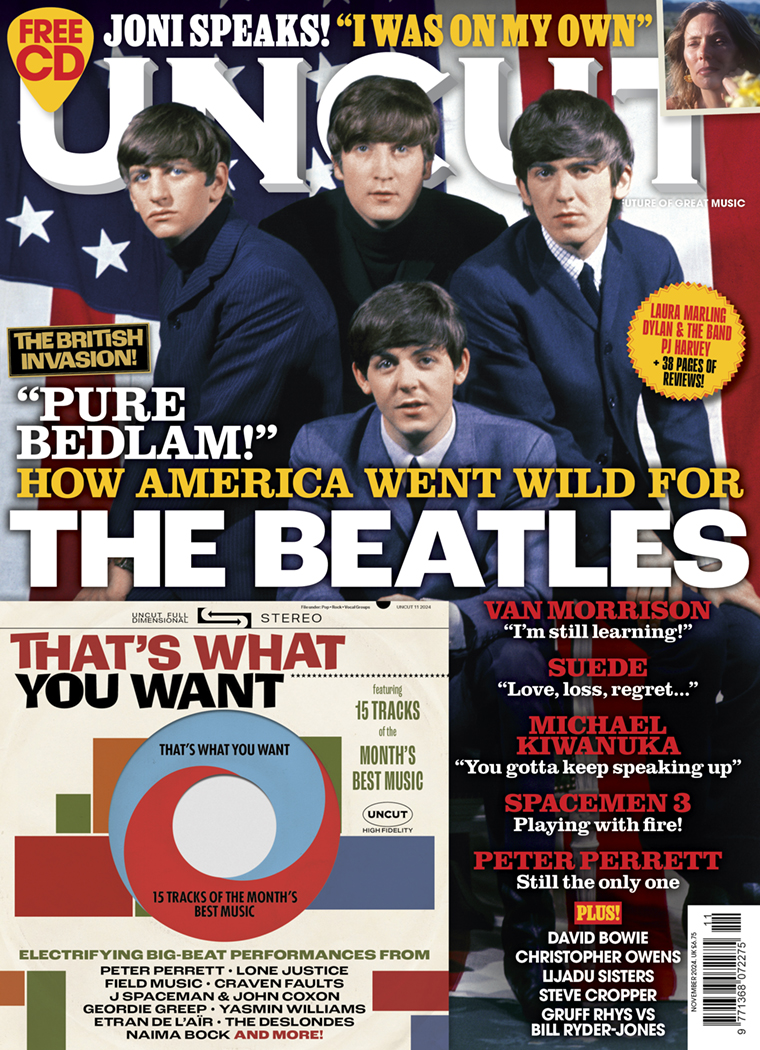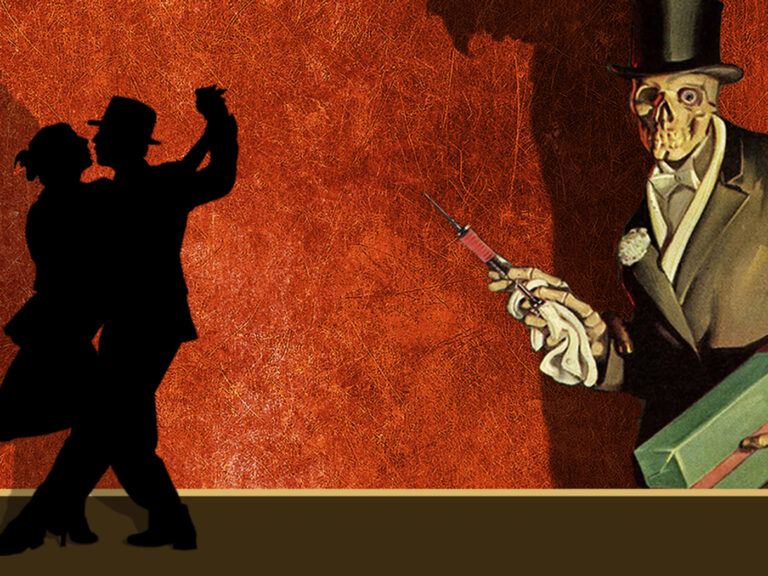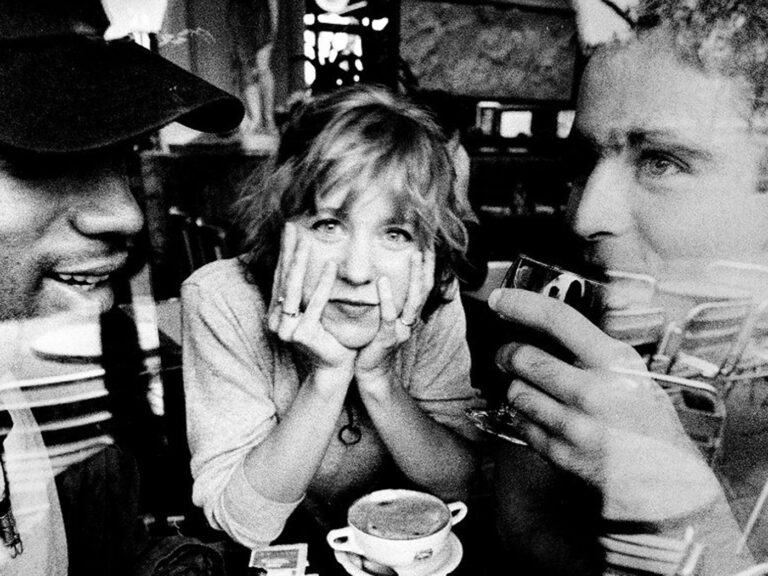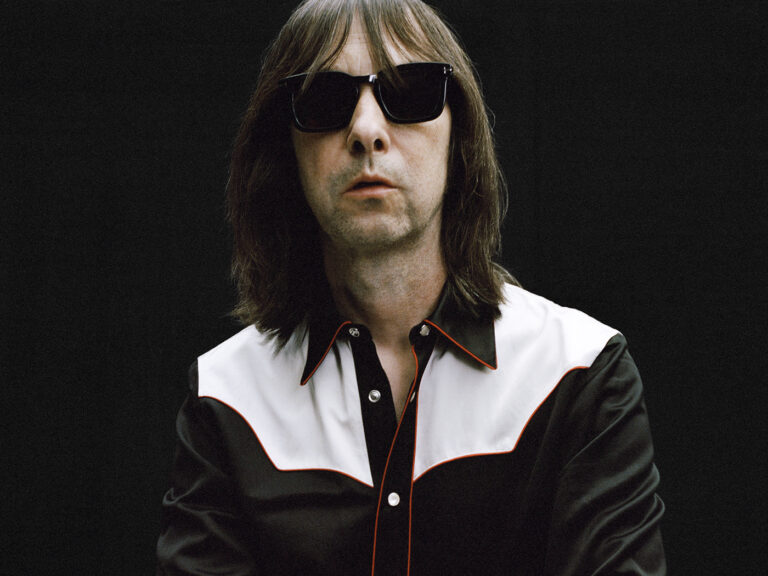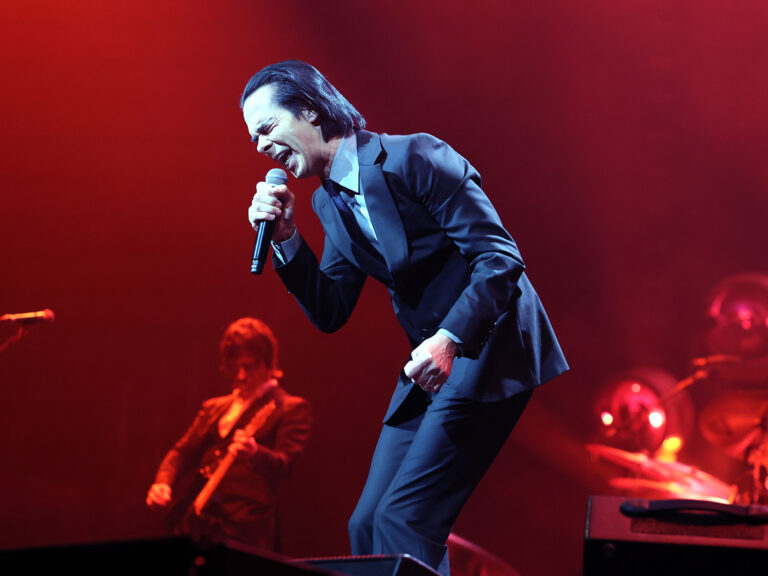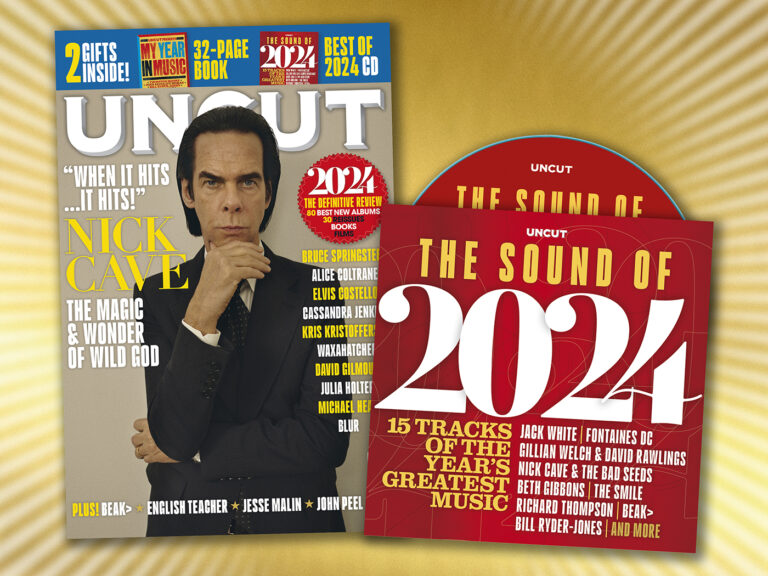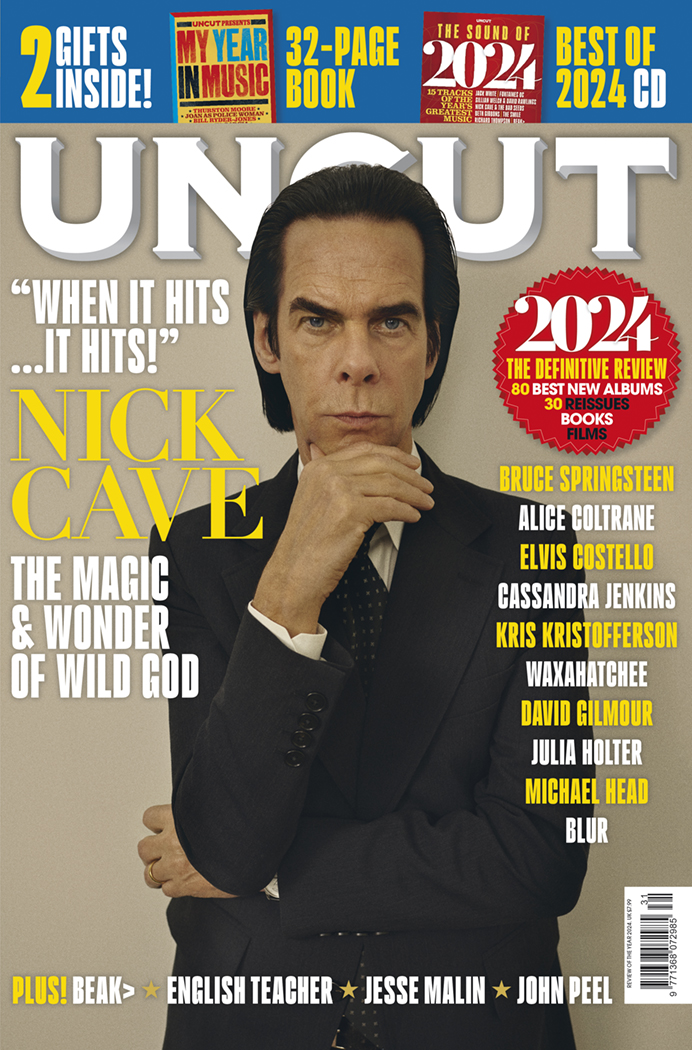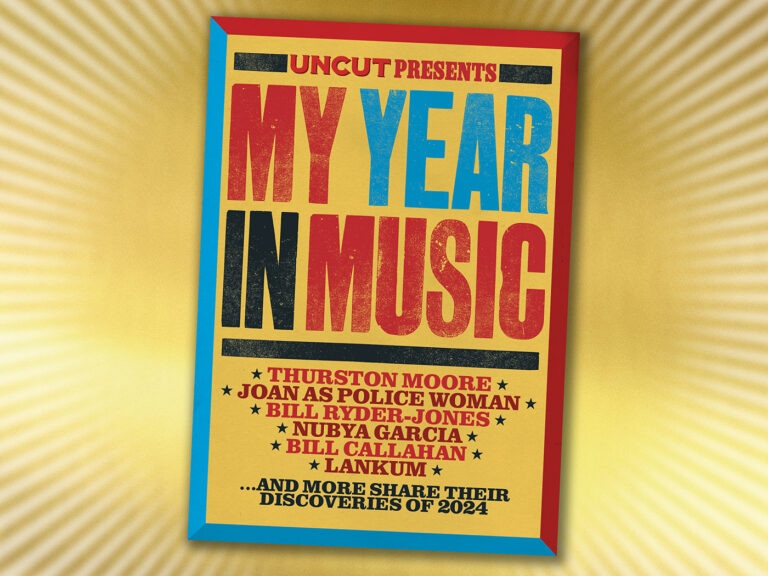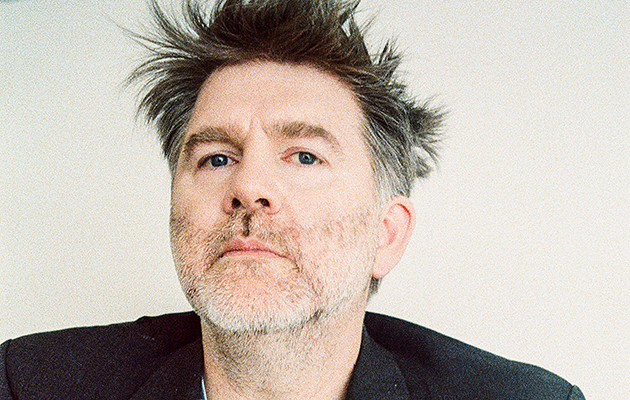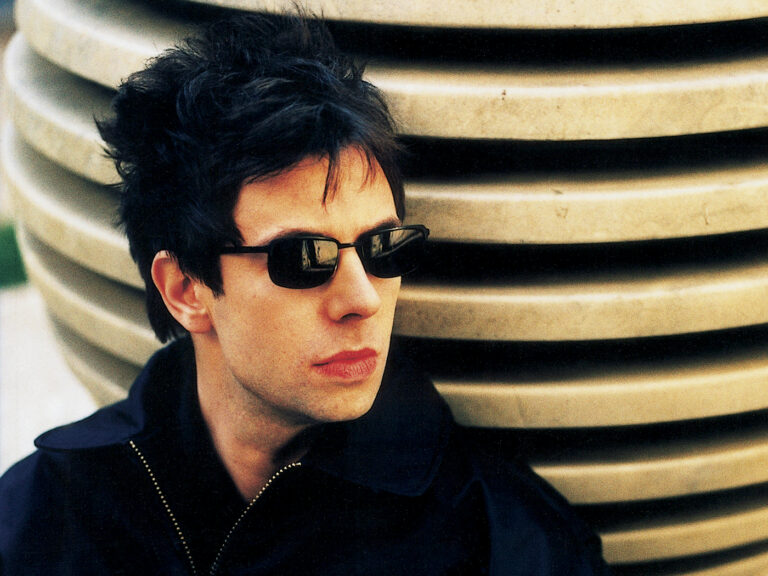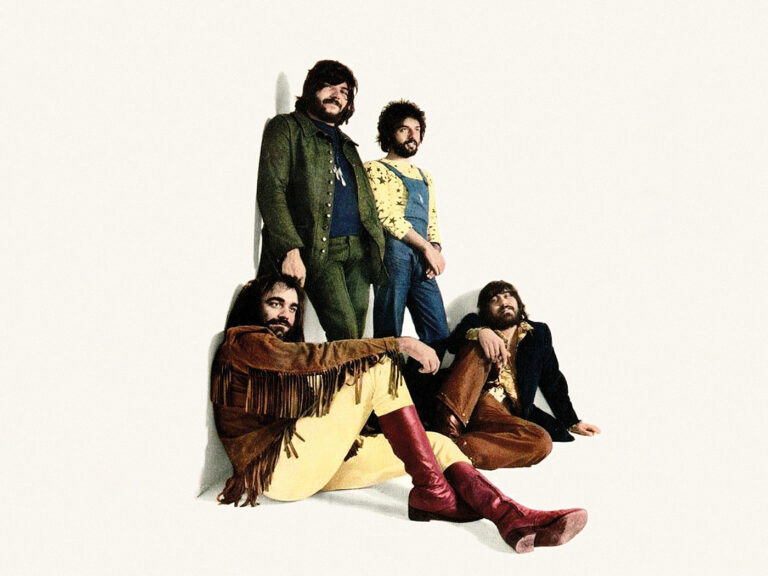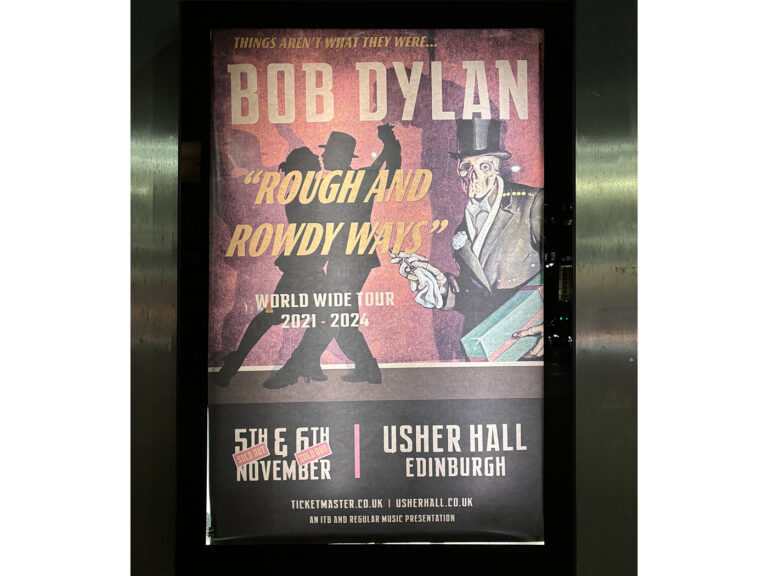Robin Pecknold confesses a case of nerves after taking the stage — or the rug, to be more accurate — in Levon Helm Studios, a rustic space in the woods of Woodstock. He blames his mood on the moment: this is the first full-length, fully solo show he’s ever done, the start of a nine-date solo mini-tour crossing North America. Yes, there had been A Very Lonely Solstice, the 2020 pandemic livestream-turned-LP, in which his solo arrangements were abetted by a white-robed, socially-distanced choir. But tonight he is on his own, with five acoustic guitars and a pedal board, though conceivably less lonely, among roughly 200 fans who’d managed to snag tickets, which sold out within minutes of going on sale.
Robin Pecknold confesses a case of nerves after taking the stage — or the rug, to be more accurate — in Levon Helm Studios, a rustic space in the woods of Woodstock. He blames his mood on the moment: this is the first full-length, fully solo show he’s ever done, the start of a nine-date solo mini-tour crossing North America. Yes, there had been A Very Lonely Solstice, the 2020 pandemic livestream-turned-LP, in which his solo arrangements were abetted by a white-robed, socially-distanced choir. But tonight he is on his own, with five acoustic guitars and a pedal board, though conceivably less lonely, among roughly 200 fans who’d managed to snag tickets, which sold out within minutes of going on sale.
Another similarity with the 2020 pandemic show was the ambient sense of crisis, now stemming from the previous week’s presidential election. But Pecknold makes no mention of it, beyond an empathetic nod to collective grief. Instead, after a brief and beguiling opening set by New York singer-songwriter Allegra Kreiger, with light from the full moon brightening trees outside the windows, he creates a sanctuary for 90-some minutes, making the pine-and-bluestone barn feel as sacred as the Brooklyn church that staged …Lonely Solstice.
The room — where Helm held court in his final years, hosting shows with many great musicians — is full of ghosts and history, so it is fitting that Pecknold packs his set with covers. The recent Judee Sill documentary opens with Pecknold singing the late singer-songwriter’s signature “The Kiss”. Tonight we get another of her forgotten gems, “Loping Along Thru The Cosmos”, Pecknold’s remarkable high tenor riding the curlicues of its rambler’s benediction with warm precision.
He does the same on two Joni Mitchell songs, illuminated by a story of finding himself in the unlikely position of her rhythm guitarist, at her star-studded Hollywood Bowl comeback concerts last month in Los Angeles. Tonight, he streamlines “Amelia” from its mercurial Hejira version, yet delivers it fully-formed with a 12-string Stella acoustic guitar, distilling ‘60s and ‘70s Joni into a single shimmering sound. During “The Silky Veils Of Ardor”, from Don Juan’s Reckless Daughter, he marvels aloud at Mitchell’s “wild” chords and tunings (the setlist/ cheat sheet at his feet notes specifics of the latter). Pecknold nails it, making clear why he was drafted by Mitchell — gorgeous voice and unerring feel for harmonies aside, he’s a super-nerd for details, one reason his covers are so satisfying.
There are others — “Morning Of My Life” (aka: “In The Morning”), an early Bee Gees nugget Pecknold has made his own in recent years. He plays the traditional “Silver Dagger” a la Joan Baez’s 1960 debut LP. There is also Arthur Russell’s “Close My Eyes”. And for the finale: Elliot Smith’s “Pitseleh”, preceded by a story about it was the first song he ever played in front of a proper audience (as a precocious schoolboy at a talent show), and how a teacher had thought it was an original. As if, Pecknold chuckles.
Yet what was most remarkable about all these covers is how comfortably his own Fleet Foxes songs nestled alongside them, shining no less bright. “Tiger Mountain Peasant Song”, “Oliver James”, “Young Man’s Game”, “Third Of May/ Odaigahara”. He delivers “Mykonos” minus the CSNY-style harmonies of the version from the Sun Giant EP, but it lacked for nothing in musical richness.
And then there is “Sunblind”, from 2020’s Shore. Pecknold plays it near the start of this set — a song that celebrates swimming “in warm American water with dear friends” (a reference, he noted, to nearby Lake Minnewaska), and the pantheon of passed singer/songwriters he holds dear, among them Richard Swift, “Judee and Smith”, Arthur Russell, and more, for whom he imagines a “great coronation.” It proved to be a statement of purpose for the evening’s performance — and indeed, for Robin Pecknold’s entire musical journey to date.
Robin Pecknold played
I Should See Memphis
Sunblind
Tiger Mountain Peasant Song
Loping Along Thru The Cosmos
Close My Eyes (Arthur Russell cover)
Kept Woman
Third Of May / Odaigahara
Young Man’s Game
Isles
I Let You
Silver Dagger (traditional)
Someone You’d Admire
Amelia (Joni Mitchell cover)
Maestranza / Katie Cruel (traditional)
Montezuma
Blue Spotted Tail
Mykonos
The Silky Veils Of Ardor (Joni Mitchell cover)
In The Morning (Bee Gees cover) > Meadowlarks > Oliver James
Pitseleh (Elliott Smith cover)



